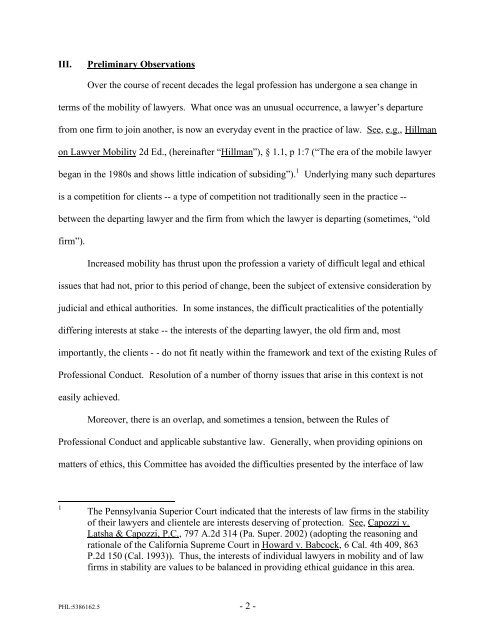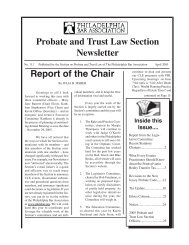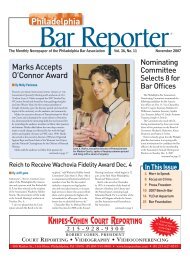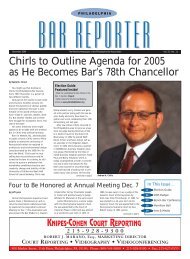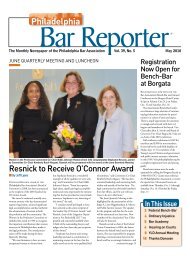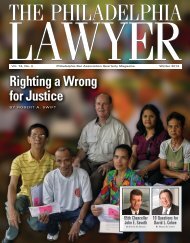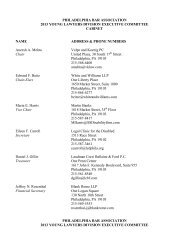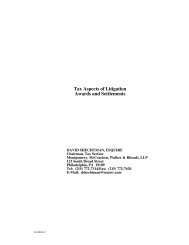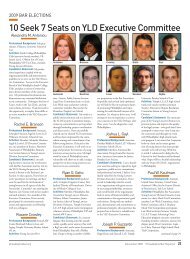here - Philadelphia Bar Association
here - Philadelphia Bar Association
here - Philadelphia Bar Association
You also want an ePaper? Increase the reach of your titles
YUMPU automatically turns print PDFs into web optimized ePapers that Google loves.
III.<br />
Preliminary Observations<br />
Over the course of recent decades the legal profession has undergone a sea change in<br />
terms of the mobility of lawyers. What once was an unusual occurrence, a lawyer’s departure<br />
from one firm to join another, is now an everyday event in the practice of law. See, e.g., Hillman<br />
on Lawyer Mobility 2d Ed., (<strong>here</strong>inafter “Hillman”), § 1.1, p 1:7 (“The era of the mobile lawyer<br />
began in the 1980s and shows little indication of subsiding”). 1<br />
Underlying many such departures<br />
is a competition for clients -- a type of competition not traditionally seen in the practice --<br />
between the departing lawyer and the firm from which the lawyer is departing (sometimes, “old<br />
firm”).<br />
Increased mobility has thrust upon the profession a variety of difficult legal and ethical<br />
issues that had not, prior to this period of change, been the subject of extensive consideration by<br />
judicial and ethical authorities. In some instances, the difficult practicalities of the potentially<br />
differing interests at stake -- the interests of the departing lawyer, the old firm and, most<br />
importantly, the clients - - do not fit neatly within the framework and text of the existing Rules of<br />
Professional Conduct. Resolution of a number of thorny issues that arise in this context is not<br />
easily achieved.<br />
Moreover, t<strong>here</strong> is an overlap, and sometimes a tension, between the Rules of<br />
Professional Conduct and applicable substantive law. Generally, when providing opinions on<br />
matters of ethics, this Committee has avoided the difficulties presented by the interface of law<br />
1<br />
The Pennsylvania Superior Court indicated that the interests of law firms in the stability<br />
of their lawyers and clientele are interests deserving of protection. See, Capozzi v.<br />
Latsha & Capozzi, P.C., 797 A.2d 314 (Pa. Super. 2002) (adopting the reasoning and<br />
rationale of the California Supreme Court in Howard v. Babcock, 6 Cal. 4th 409, 863<br />
P.2d 150 (Cal. 1993)). Thus, the interests of individual lawyers in mobility and of law<br />
firms in stability are values to be balanced in providing ethical guidance in this area.<br />
PHL:5386162.5 - 2 -


